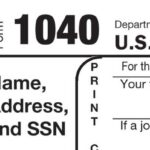The following quiz was designed to test your knowledge of small business regulatory and compliance issues. Are you ready to put your knowledge to the test?
If you are not familiar with many of the terms and acronyms used by the government, here is a good primer post.
Business Licenses & Permits
Business licensing is one of the most confusing aspects of starting a business since it varies so much from state to state and from business to business.
Business licensing is not the same as registering an entity with the Secretary of State, which we will cover later. Business licenses may be necessary on a federal, state, county, or city/town level.
Licensing is essentially when a government agency gives a business permission to do something so they can provide some level of oversight. In most states, there are two general categories of business licenses.
Sales Tax – If you are collecting sales taxes for a taxing jurisdiction, you will need a sales tax license issued by the appropriate department of revenue.
Professional/Trade License – Some industries are regulated based on a government agency’s fiduciary duty to protect the public. There are three principal reasons that a business in a specific industry is required to register.
In the event that a business is in need of a professional/trade license to practice based on a specific industry, many states have an office that develops and maintains a database where a business can search for the appropriate licensing they will need to operate. In the state of Colorado, many are administered by the Department of Regulatory Agencies (DORA), but not all. Unfortunately, in Colorado, there is no longer a single starting point to see if you need a professional/trade license. There is an OLD archived copy of the occupational licensing database (https://stevebizblog.com/knowledge-database-tool/navigator-regulatory-and-compliance/) that is stored on the way back machine to at least help find the appropriate agency.
If your business is regulated by the federal government, for instance, if you are selling booze or guns, you will also be required to obtain a federal license in addition to the state licenses. The list of industries regulated by the Federal government is maintained by the Small Business Administration and can be found on the Federal Licenses and Permits website.
State licensing varies dramatically from state to state, which means that a general Google search for Business Licensing will prove futile and lead to more confusing results. Here is a link to an article by Fundera that is a good start and includes some good links to state business licensing agencies.
In addition to granting a business license, a business may also require a permit, such as a zoning permit or a permit from the health department to operate. The difference between a license and a permit is that a permit comes with some restrictions, while a license is much more general.
Registering Your Entity
This quiz was designed to test your knowledge of choosing the right entity for your small business. Are you ready to put your knowledge to the test?
A new requirement since 2014 when you register is business is to submit a list of beneficial owners to FinCEN.
One of the first things most new business owners do is register their entity with the Secretary of State. While this may seem like a logical first step, it is recommended that you register only after you have considered how much funding you would need and where it would come from. Each type of investor, such as family, friends, angels, etc., requires a different relationship with the business that is defined by the entity.
If you have not already figured out how much funding you need or where it will come from, you should explore the following page first.

Financial Aspects
When it comes to selecting an appropriate entity for your new business, there are pros and cons associated with each entity. This post from SCORE does a pretty good job of describing the pros and cons of the most common types of entities.
Assuming that you have selected the most appropriate type of entity for your new business, you are now ready to register your entity with the Secretary of State (SOS).
Most states follow the URL convention www.sos.state.NN.us, where NN is the two-letter abbreviation for the state. However, not all states follow this convention, but a Google search for “State Name” + “SOS” will usually work to find the URL of your SOS.
The SOS does more than just business registration, so you may need to search through a bunch of programs and services to locate where they regulate business functions. Once located, the first step is to verify that the name you chose for the new business has not already been taken. Be sure to include the entity designation, such as “LLC” or “Inc” in the name.
Remember, the primary reason that you register with the SOS is that in the event of a lawsuit, the plaintive or his legal counsel can simply search the list of business names to locate the Register Agent who will be the person that will be served.
There is a lot of misinformation regarding entities, so the first thing you should understand before you register is why a new business would want to register with the Secretary of State in the first place.
Another common piece of misinformation related to registering an entity is the protection it affords in terms of limiting the liability of a business owner in the event of a lawsuit.
After verifying that the name you want has not already been taken, you will be asked to complete an online application process. The questions you will be asked are pretty straightforward, such as the address of the business, the person completing the application, and the name and address of the registered agent, who can be a founder, local lawyer, or a company like incorp, which I personally use for some of my foreign entities.
A foreign entity is an existing business that is registered to do business in a state or jurisdiction other than where it was originally filed. For example, Walmart Inc.‘s home is in Arkansas, where they are a domestic entity. Since they have assets in Colorado, Walmart Inc. is registered as a foreign entity in Colorado. You can register as a foreign entity as long as you register with the same name as the domestic entity. The general rule for having to register as a foreign entity is if the business has a physical presence, employees, or a bank account in another state.
If you simply sell products online via the Internet and have no office, employees, or bank account in a state where the buyer takes possession, generally, you do not need to register as a foreign entity or collect local sales taxes. However, when in doubt, it is always a good idea to seek guidance from an attorney specializing in e-commerce.
Two of the most popular entities used for small businesses are Limited Liability Companies and Corporations.
LLC
The following quiz was designed to test your knowledge of Limited Liability Companies (LLC). Are you ready to put your knowledge to the test?
LLCs are often recommended due to flexibility and simplicity. However. LLCs are not the perfect entity they are made out to be.
If you are registering an LLC, you will have to make a choice about how decisions will be made.
“Member-Managed” means that every member gets a vote and that all members are active in the decision-making process. A member-managed LLC makes every member a manager, and therefore, each member can be considered culpable for bad decisions made by the business and, therefore, subject to being sued as a manager.
“Manager-Managed” means that one or more managers will be the decision-makers, and the rest of the members, who are considered investors only and not managers, have liability protection from bad decisions that the business makes since they were not involved in the decision-making process.
When you complete the application and pay your registration fee, the SOS will issue your “Articles of Organization”.
CORPORATION
Corporations are different from partnerships and LLCs in that they issue shares of stock. So, if you are registering a Corporation, either a Sub-Chapter S (S-Corp) or a C-Corp, you will be asked about the number of common stock shares the corporation is authorized to issue. This is the number of shares that the corporation can issue.
Some businesses operate in states that have a franchise tax. Colorado, where I live, does not have one. In states with a franchise tax, the business will often initially list a low number of authorized shares to minimize expenses. A franchise tax is essentially a fee that gives a business the privilege to operate in the state, and unlike what the name implies, it is not limited to just franchises.
Another decision a corporation will have to make is whether there will be more than one class of stock, such as common stock and preferred stock.
Common Stock has voting rights, and the number of shares that an investor owns accords them a greater share in decision-making (since you vote your shares). You, additionally, have claims to the company’s profits based on the number of shares you own.
Preferred Stock, in contrast, generally does not have voting rights, but they often have a greater claim on the assets upon liquidations and often receive fixed payments (not based on profits) before common stockholders.
Here is a link to an article that provides a more comprehensive description of each type of stock.
When you complete the application and pay your fee, your “Articles of Incorporation” will be issued.
If you live in Colorado, there is an official tool developed by the State of Colorado to help you register and manage a business. It is called MyBizColorado.
Also, if a business does work in other states and there is a possibility that it might be suited, it would want to register as a foreign entity in that state. When a business registers as a foreign entity and a customer files a lawsuit, the registered agent designated in the articles in that state will be served, and the business will be notified of the legal action being taken. If the business is not registered in that state but does business there and is sued, there is no one to notify the business. Therefore, the plaintiff can win a summary judgment without the business ever knowing a lawsuit was ever brought against them.
However, if a business just ships a product to a customer in a different state and does not have an office in that state, it does not need to register in that state as a foreign entity.
Non-Profit
The final topic related to business entities is the creation of a non-profit. Many times, the founder thinks they want to create a non-profit, but non-profits are often not necessary or even recommended. Below is a post that looks at what you need to know about non-profits.
Also, if creating a non-profit is the right entity for you, you should pay particular attention to the makeup of the board of directors as outlined in the following post.
The next concept related to an entry selection is what is known as a pass-through entity for income tax purposes. Here is an excerpt from a video lesson from Boot Camp: Steps to Owning your Business, which explains what a pass-through entity is and how it will affect your income taxes, and the kind of investors you could attract.
When it comes to selecting the proper entity for you, there are pros and cons for each entity. The following compares the most common entity types side by side so you can make an informed decision about the best entity for you.
One aspect often not considered is that social sector businesses are very different from for-profit businesses.
Many LLCs include the founder and their spouse. Here is what you need to know if you plan to have your spouse as a member of your LLC.
One of the elements you can choose for an LLC is centralized management. Centralized management is when you have someone other than the members run the business. Here is what you need to know about LLCs and centralized management.
Limited liability companies are essentially stripped-down corporations. Here is what you need to know to make sure your LLC is compliant with IRS rules and will not be taxed as a corporation by the IRS.
Not all businesses can form as an LLC. If you are a professional, then a PLLC is the right entity for you.
Once you register your entity with the Secretary of State, there are several common formation errors that you need to avoid.
Taxes
There are essentially 3 types of taxes that most businesses will pay: Property, Income, and Sales.
Property Tax
Just like a homeowner pays real estate taxes based on the assessed value of the property, so do businesses if they own real property. Property taxes are assessed by local entities such as towns and cities for local purposes such as paying for schools, roads, and infrastructure improvements. The business will receive an annual tax bill based on the value of the real property.
Income tax
The following quiz was designed to test your knowledge of basic tax forms every small business owner should know. Are you ready to put your knowledge to the test?
Being a business owner has risks, and the government rewards this risk-taking with some income tax avoidance strategies for business owners.
Many new businesses are usually confused about Income taxes. The following posts attempt to explain some of the nuances of income taxes.
If you raise money using a crowdfunding campaign, the amount you raise may be subject to income taxes in some situations.
Sales tax
Sales taxes are generally assessed based on the sale of tangible products and not labor. However, some states may tax some types of labor, so it is always advisable to check with your local sales tax office.
Sales taxes are assessed when a transaction occurs between a business and the end user of a product in a retail transaction. When a business sells goods at wholesale to another business that will add additional value and is not the end user of your product, no sales taxes should be collected.
What a business needs to understand about sales taxes is that there are many taxing jurisdictions that collect sales taxes and that when the business sells a product that it will deliver or ship to the end user, taxes are collected in the jurisdictions the business has in common with the buyer, based on where the end user will get the delivery. Here is a video that looks at what you need to know about sales taxes.
ALERT: COLORADO SALES TAX UPDATE
Effective December 1st, 2018, Colorado retailers are expected to collect sales taxes from all Colorado Taxing jurisdictions, not just those they have in common.
Here is a LINK to a Webinar from the Colorado Department of Revenue that explains the new tax collection procedure.
Also, here is the link to the updated DR-1002 that includes the tax rates for all Colorado taxing jurisdictions.
In June 2018, the Supreme Court ruled that even if an online business does not have a nexus (physical presence) in a state, the state can require online retailers to collect and remit sales taxes.
This ruling has far-reaching implications for any business selling products online. While the rules are changing day by day, CPA Brad Whitten of Pikes Peak Financial Group explains how the new sales tax collection rules may apply to you.
However, since the initial sales tax ruling came down, marketplace facilitators have emerged, allowing smaller eCommerce retailers to essentially outsource the sales tax collection.
Prior to the court’s ruling, most eCommerce retailers only had to have a sales tax license and collect sales taxes for all jurisdictions for a single location. Based on the location where the buyer took possession of goods, the seller only had to collect sales taxes for the taxing jurisdictions that the seller and the buyer had in common. That all changed, as many states have used the Supreme Court’s ruling to impose their own requirements on Internet sellers in order to collect sales taxes.
Here is what you need to know as an online retailer.
There are 7 rules related to collecting sales taxes that a business must understand.
When you primarily provide labor and occasionally products to supplement an offering, there are a few sales tax collection workarounds.
Getting Paid
If a business has more than one owner, it will need to apply for a Tax ID Number (TIN) for the business from the IRS. If the business has employees and it is a sole proprietor or a single member LLC, the business does not, technically, need to have a TIN as the owner’s social security number (SSN) is the TIN. However, if the business has employees, they should consider getting a TIN for the business so the owner does not have to use their SSN on the W2s they send to their employees and on other tax forms.
Note: if a business makes purchases from wholesalers, they are considered tax-exempt transactions since the business is not the end user of the products. So as not to give every wholesaler an SSN, the business would also want to have a TIN.
A Tax ID Number (TIN) is also referred to as an Employee ID Number or EIN for short.
Before we get into the meat of the discussion, which is how to pay owners, managers, and employees of a business, the issue of using subcontractors and freelancers should be explored. Here is a video that takes a closer look at subcontractors and freelancers.
If you hire a subcontractor directly and not through a freelancing agency, and later, that subcontractor fails to pay his withholding taxes and it is determined that the subcontractor could be considered your employee, the business may become liable for their unpaid taxes.
While having a subcontractor agreement is never a perfect form of protection, it is always a good idea to have the people you have subcontracted sign an agreement stating that they are independent contractors. Below is a template for an Independent Contractor Agreement that you can download.
Independent Contractor Agreement Template
The way you get a return as an investor and/or employee of your business varies with the entity type you select. Choose an entity from the following list to see a paper on how owners and managers are paid:
- Sole Proprietor
- LLC (Choose one below)
- Limited Partnership
- S-Corp























